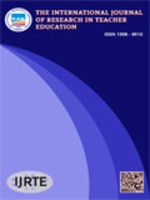Challenges Faced By Novice Language Teachers: Support, Identity, And Pedagogy In The Initial Years Of Teaching
Challenges Faced By Novice Language Teachers: Support, Identity, And Pedagogy In The Initial Years Of Teaching
Beginning teachers experience various challenges as they strive to develop their teaching in new environments. In this paper, we explore the challenges faced by novice language teachers and the support needed to address these. For this purpose, recent studies on the experiences of novice language teachers were reviewed. Three major themes were prevalent in research on this issue: support, identity and pedagogy. In the paper, we discuss each area and a selection of related studies. In addition, to present a specific case, we highlight the results of an exploratory semi-structured interview we conducted with a novice language teacher at a university in Cyprus. The results underscore the criticality of addressing challenges faced in initial years of teaching. Since beginning teachers make decisions to either stay in the profession or drop out, instead of alienating novice teachers, educational leaders ought to organize collaborative opportunities with beginning teachers. Such endeavors may help provide the necessary environment fostering safety, belonging, and self-esteem for novice teachers.
___
- Baecher, L. (2012). Feedback from the field: What novice preK–12 ESL teachers want to tell TESOL teacher educators. TESOL Quarterly, 46(3), 578-588.
- Burns, A., & Richards, J. C. (2009). The Cambridge guide to second language teacher education (pp. 1-8). Cambridge: Cambridge University Press. Retrieved from: http://assets.cambridge.org/97805217/60126/excerpt/9780521760126_excerpt.pdf
- Brannan, D., & Bleistein, T. (2012). Novice ESOL teachers’ perceptions of social support networks. TESOL Quarterly, 46 (3), 539-541.
- Canagarajah, A.S. (2006). TESOL at forty: What are the issues? TESOL Quarterly, 40 (1), 9-34.
- Champeau de Lopez, C.L.(1989). The role of teacher in today’s language classroom, In Kral, T (Ed.). Teacher Development. Washington: USIA, 9- 17.
- Cohen, L., Manion, L., & Morrison, K. (2000). Research methods in education (Fifth Edition). London & New York: Routledge.
- Faez, F., & Valeo, A. (2012). TESOL teacher education: Novice teachers' perceptions of their preparedness and efficacy in the classroom. TESOL Quarterly, 46(3), 450-471.
- Farrell, T. S. C. (2012). Novice-Service language teacher development: Bridging the gap between preservice and in-service education and development. TESOL Quarterly, 46(3), 435–449.
- Haynes, L. (2011). Novice teachers' perceptions of their mentoring experiences. ProQuest Dissertations & Theses (PQDT). Retrieved from: http://search.proquest.com/docview/922678446?accountid=13014 Kim, K., & Roth, G. (2011). Novice teachers and their acquisition of work-related information. Current Issues in Education, 14 (1). Retrieved from http://cie.asu.edu/
- Kramsch, C., & Sullivan, P. (1996). Appropriate pedagogy. ELT Journal, 50 (3), 199-212.
- Kumaravadivelu, B. (2001). Toward a postmethod pedagogy. TESOL Quarterly, 35, 537–560.
- Lee, L. (2009). Scaffolding collaborative exchanges between expert and novice language teachers in threaded discussion. Foreign Language Annals, (42)2, 212-228.
- Mann, S. M., & Tang, E. H. H. (2012). The role of mentoring in supporting novice English language teachers in Hong Kong. TESOL Quarterly, 46(3), 472-495.
- Meyer, H. (2004). Novice and expert teachers’ conceptions of learners’ prior knowledge. Science Education, 970, 983.
- Ozturk, M. (2008). Induction into teaching: adaptation challenges of novice teachers. Unpublished Master’s Thesis. Middle East Technical University.
- Paran, A. (2012). Language Skills: Questions for teaching and learning. ELT Journal, 66 (4), 450-458.
- Pitton, D. E. (2006). Mentoring novice teachers: Fostering a dialogue process (2nd ed.). Thousand Oaks, CA: Corwin Press.
- Richards, J. C. (1998). Beyond training. Cambridge, Cambridge University Press.
- Richards, J. C. & Farrell, T. S. C. (2005). Professional development for language teachers: strategies for teacher learning. Cambridge: Cambridge University Press.
- Richards, J., & Pennington, M. (1998). The first year of teaching. In J. Richards (Ed.), Beyond training (pp. 173—190). Cambridge: Cambridge University Press.
- Ross, D.D., Vescio, V., Tricarico, K, & Short, K. (2011). Secrets for mentoring novice teachers. Gainesville, FL: Lastinger Center for Learning.
- Shin, S. (2012). “It Cannot Be Done Alone”: The socialization of novice English teachers in South Korea. TESOL Quarterly, 46 (3).
- Winter, E. C. & McGhie-Richmond, D. (2005). Using computer conferencing and case studies to enable collaboration between expert and novice teachers. Journal of Computer Assisted Learning 21, pp118–129.
- Xu, H. (2012). Imagined community falling apart: A case study on the transformation of professional identities of novice ESOL teachers in China. TESOL Quarterly, 568-578.
- ISSN: 1308-951X
- Başlangıç: 2010
- Yayıncı: Eğitim Araştırmaları Birliği Derneği
Sayıdaki Diğer Makaleler
